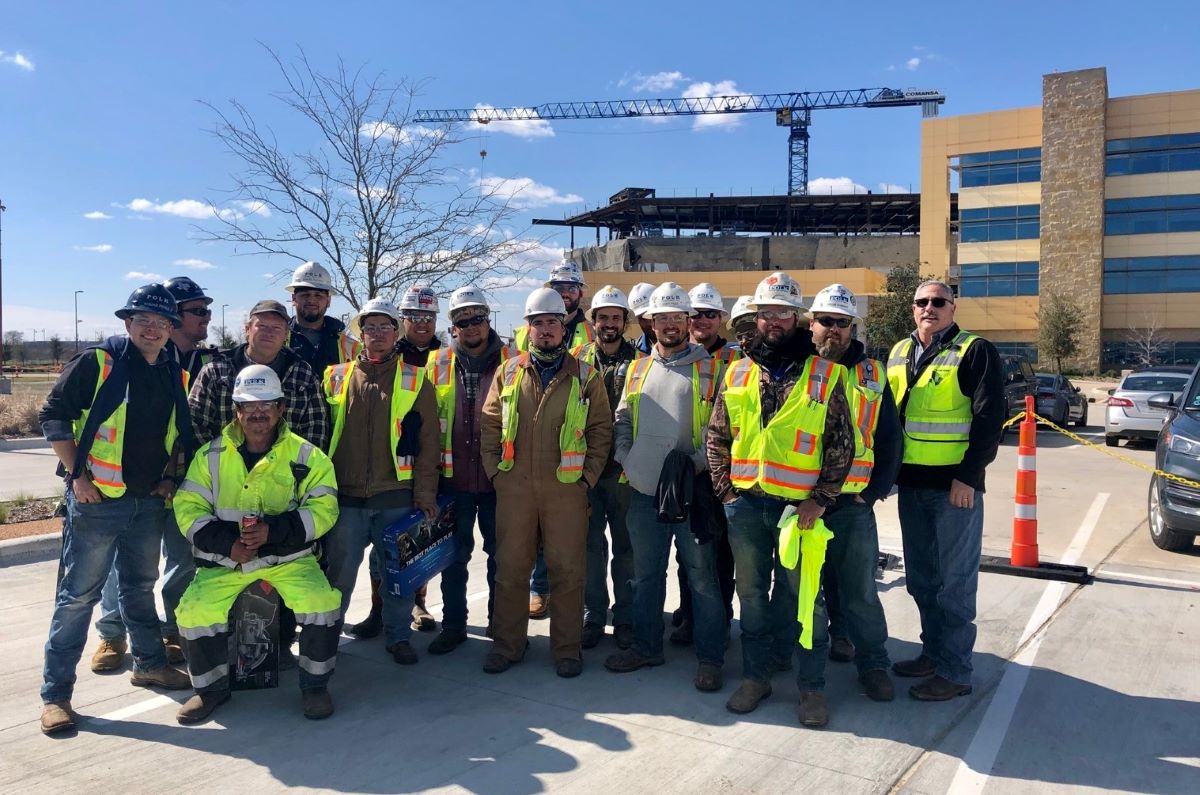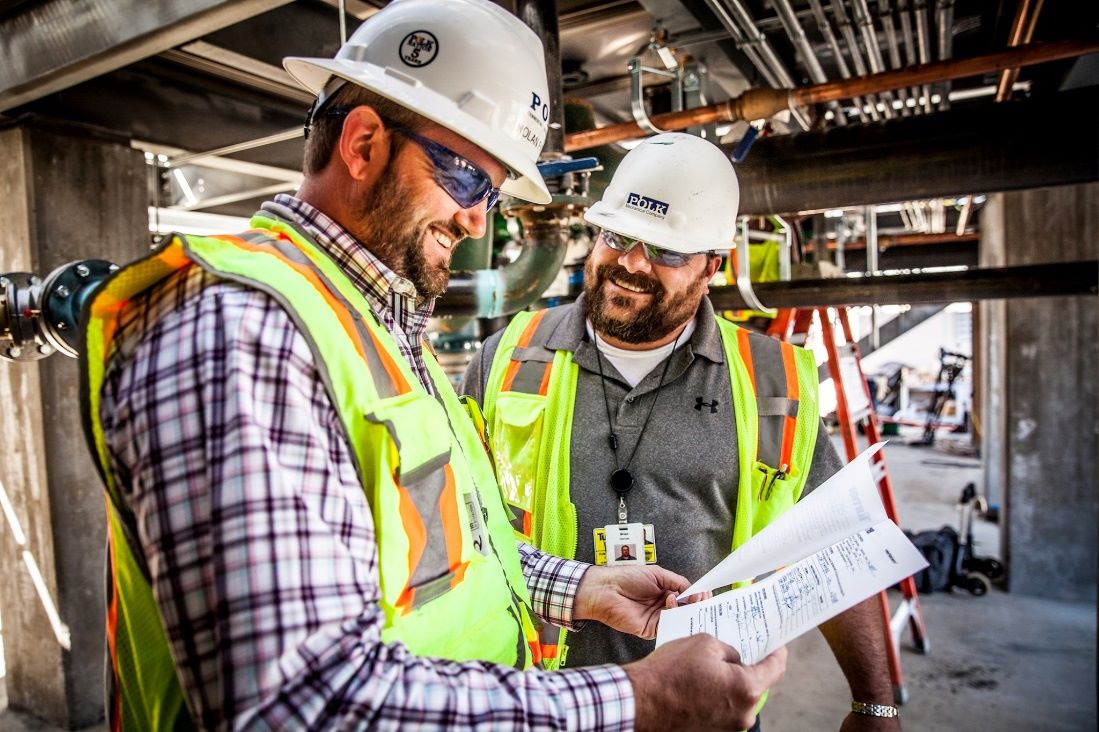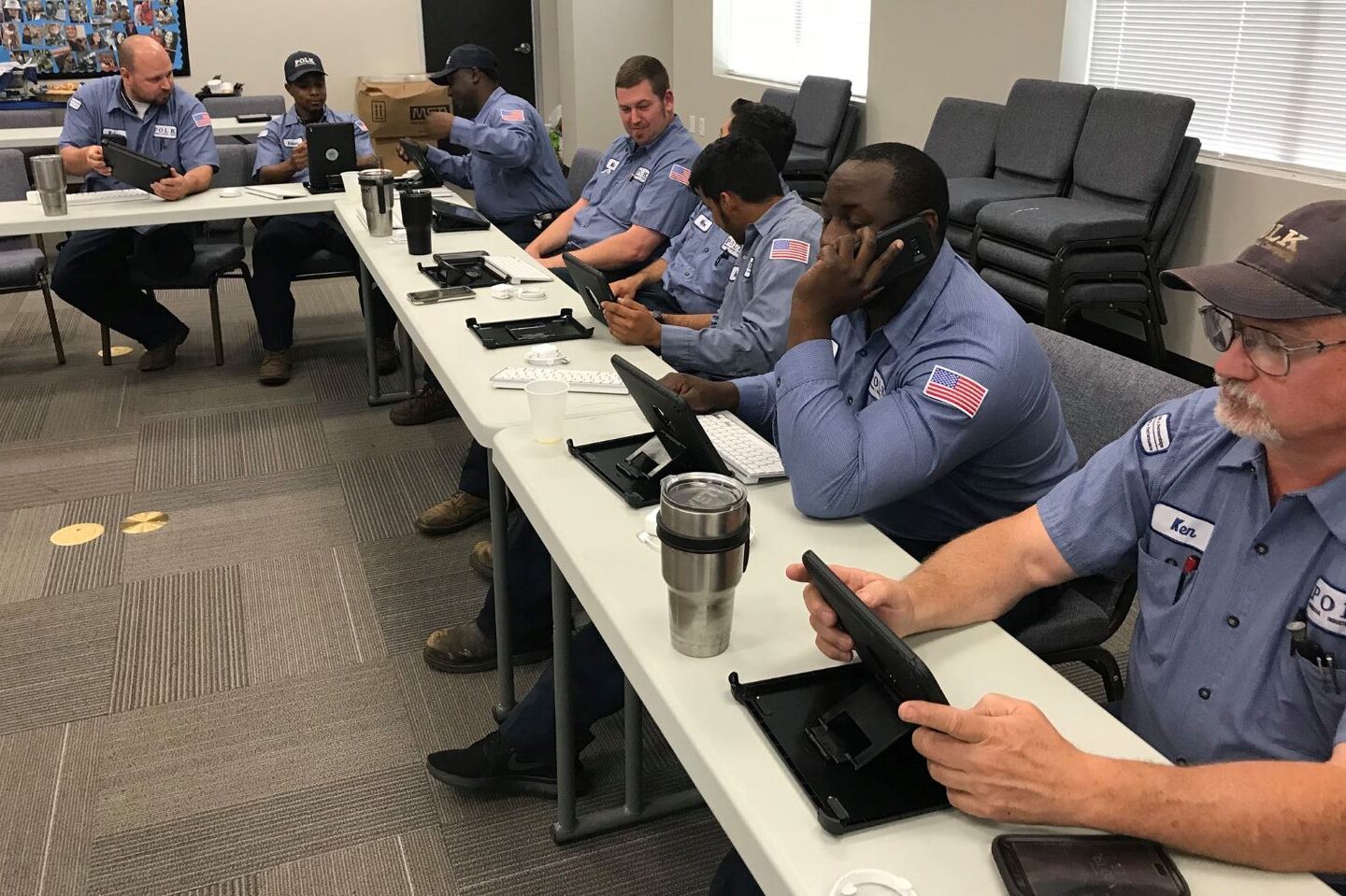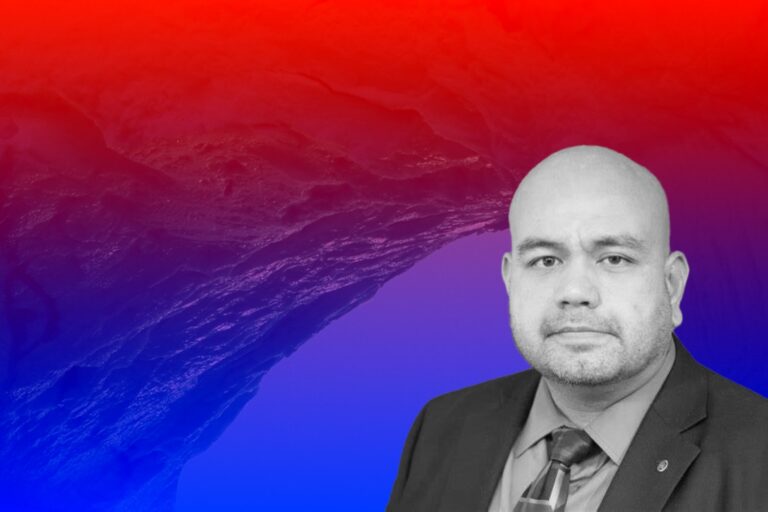Learn Elevating & Embracing the Frontliners with Polk Mechanical
Polk Mechanic the Grand Prairie, Texas-based specialty firm has become a powerful player in the industrial and commercial scene. Within the commercial space, the company creates infrastructure that is the beating heart of healthcare facilities, telecommunications firms, data centers education campuses or even retail operations. Besides services like plumbing, renovation, estimating, mechanical contracting or construction management it also offers solutions for risk management and maintenance.
The firm began operation as its founder Ken Polk made a purchase upon the Texas division of Encompass Construction in a 2003 bankruptcy sale. From that foundation, the company revived into the new life focusing on mechanical services – under the leadership of president and CEO Fran McCann. According to the firm, around 2019 and 2020 Polk Houston saw revenue skyrocket from $9 million to $18 million. Polk Mechanic, for now, is a $160 million enterprise with an employee base of 600 around offices in Dallas and Houston.
The First 10 Years of Elevation
Begin its many first years with the new identity of Polk Mechanic, the company takes on elevation initiatives in several themes and strategies that tied together amazingly and enabled it to double its revenue within 3 years. In an interview with 17Twenty, the firm’s CEO Fran McCann talks about the company’s first 10 years, the mentality that unites his team, and the math he does on elevating Polk.
“The first two years in business we didn’t even really do any new work. All we did was trying to collect money to survive out of what was owed since the bankruptcy,” McCann explains. Walked out of that difficult time, the firm entered its second phase of establishing a reputation and identity. The president recalls, even though the firm had relationships in the marketplace, yet it was still a team that came out of bankruptcy, not only customers but also the firm haven’t yet grasped its own identity.
And even though building a reputation was no easy work, the firm has found its way out with the two mentalities of ‘self-limiting beliefs’ and ‘mountain climbing’. On the concept of self-limiting, the company recognized how teams are underperforming their capability and solving problems from the root as management looks for ways to unleash their force’s talent as well as exploiting every single human capital they have through good training and intensive guiding.
The concept of mountain climbing – according to McCann, is the foundation for the company’s outstanding revenues back in the day. It is a map for the next 10 years of business that mathematically laid out to be counted as hours, in other words, the CEO breaks his company’s elevation journey to the unit of hours. “If you are doing your best for every hour between January 1st of 2003 to January 1st of 2013 that represents a foot in elevation. And there are 82,648 hours in that 10-year period.”
The beauty of it, he says, is how in an overall perspective, at any point of the company’s life it is still at a higher step of the elevation – whether you are doing good or bad. Because you started at 0 but now it is 60,000 feet up in the mountain.
“The first ten years was just about getting to the base camp where you kind of rest and build a new game plan – to gather the tools and supplies to make the next leg of the journey and that we know, sure is the hardest part.” McCann addresses. As you get higher in the elevation a lot of obstacles get in the way, but the goal remains the same, “I’m getting to the top of the mountain but I got to do it safely.”
The company planned for reorganization, acquiring new technology as well as a route map for the upcoming challenges, and ready for the ‘climb on’.
The Super Score Game and Leader’s Role in the Climb On

Upon this stage, the leadership’s role is not only as a supporter to advocate people into the unknown realm but also as a visionary to guide their steps. At Polk, they were guided to play the ‘Super-score’ game.
“What I did is I ‘super-scored’ our results from the last 10 years”, McCann explains, for each of the firm’s five operating groups, he seeks out which team at which year that has done their own record and push them to doubled what they had done best. Instead of inserting his own goals for other people, it should be the people themselves setting their own goals under the management’s guidance and support.
“What year did they have a record in revenue? What year did they have a record of your gross profit? What year did they have a record year in net income? and then have those best years demonstrate your super results.”
The president recalls, the year 2009 was the firm’s best year and to look back from 2006, they had indeed doubled $3M net income to come out at $6M within just 3 years – which is far earlier than the initial plan of 5 years.
“All I’m asking is for what you’ve already demonstrated you are capable of doing. Hey, Industrial Group, I want you to duplicate the year you had in 2004. Hey, Service Group I want you to do double score what you had in 2006 and if we can all do that in the same year will double our bottom line.” Polk’s success can be attributed to how it secures people with their own belief in their expertise and capability, teams are able to break through as they break self-limitations and consequently drive the organization’s performance beyond.
The Aftermath of Conquering the Mountain
By the time the company and its people gained confidence in their game, the journey continues on as Polk felt the urge to prove that it could accomplish a new lofty goal.
“So, now it’s got to be more than that – It’s just not about conquering the mountains but what monument do we want to leave behind?”
– Fran McCann
That is when culture emerges to pull teams and connect levels across the firm.
According to the chief, culture is the foundation where all these questions lie: How do your core processes institutionalize the way you do things? How to grow a company, not in terms of sales but growth of people? How to cultivate training and development in the most exciting way? And finally, is what does it feel like for employees and customers to work with Polk?
“How do we leverage technology side by side with the succession planning – how do I get my next generation of leaders to participate in helping shape who we are going to be as a company.” Any firm’s foundation must be able to answer and align all that question into a specific mission or at least that is how they do it at Polk.
The Inception of Polk Nation

While success can be attributed to the firm’s proven position and reputation, it is also a testament to the strength of the team known as Polk Nation. Continuing the interview, McCann talks on how the firm has successfully cultivated engagement across 600 employees by turning the focus toward the majority instead of chiefs and captains.
An overall look at the firm’s operation, there are about 600 people spread out between two offices in Dallas and Houston, again break down to different active job sites plus the service technicians driving around the state. As fragmented as teams are, the need for open communication becomes even more vital. “We like to share the results of our efforts with our employees, we like to keep employees up to date on how we’re doing,” the chief adds.
At first, he came up with a town hall where folks from the offices – a third of the firm, could be informed on the news and trickle down that piece to their subordinates on the frontlines. However, “the reality is that doesn’t happen and even if It does, by the time the information gets to the end – It is not the same story you guys heard.”
So, there should be a mechanism that makes this channel work in the most effective and compelling way. And that is how social media or Polk Nation came into being, it started out as a communication strategy to push corporate information downward. Until it becomes the face of the firm, where not only employees but also their family, vendors, and customers are connected to enable ongoing dialogue with each other.
“Ultimately, it becomes a way to connect with our employees and create a community that is much bigger than just a paycheck because now it’s really turned into a community of care.” According to McCann, if you just think of the hierarchy of an organization where everybody concentrates on the management and CEOs, they would miss the point because only a group of people can’t thrive organization. Instead, the pivot point should lie on the frontliners, where everybody can be seen and recognized amongst each other through their challenging work.
The Frontiers to Make Decisions
Ryan Fort and Corey Morehouse’s company Director of Business Development, who directs preconstruction at the same time stay at the forefront to bring in new customers. “In our industry, the people who are running the project, project managers, project executives, people who are out there in the job site trailers are the ones making the decision on the next job,” Morehouse said in the Boss Magazine.
While remain resilient in long-term relationships is part of the job, so does solving minor problems along the way.

“We make sure that we’re handling each issue as if it’s one small issue of a lifetime of projects, not just focused on that one moment in time that could bend a relationship one way or the other,” Morehouse added. “Ryan and I are the first look customers get of our internal operations. What we show them and how well we work together sets their expectations for how we will collaborate and work as a team, as well as their expectations for our field crews on the job site.”
According to the director, open dialogue and communication are key for success. “We focus from the top all the way to the field on keeping open lines of communication with our customers, not just between like-minded people but also in upper levels. That way, leadership will become cheerleaders for us when the next opportunity comes up.”
The firm was in the middle of a brand refresh when the virus intervened, and rather than waiting for the storm to pass, Polk Houston seized the opportunity. “Coming out of this, people are looking for something fresh and new. They don’t want to be dealing with business as usual, and I think those factors have and are continuing to play into our progressive growth,” Morehouse explains.
As it did for many essential businesses, the pandemic opened new opportunities. As a result, 60% of Polk’s work is taking place in the healthcare and medical device spaces. In addition, it also shifted into the construction of distribution facilities, including Dollar Tree, Amazon, and FedEx.
The Bottom Line
Polk has gone a long way from surviving the paycheck to leaving the real monument, in which amazing journey the firm highlights the essence of breaking self-limitation and how counting your effort is the best way to boost operation’s energy. Side by side is a good inspiration for cultivating a culture that recognizes and revolves around the frontier workers.









